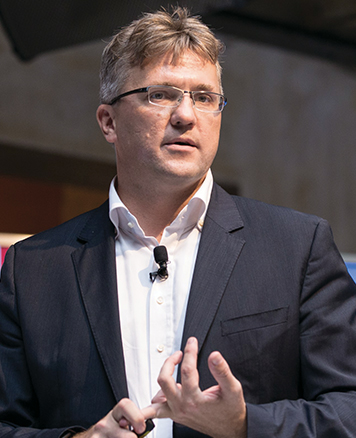Replacing a core banking system is not for the faint of heart. Márk Hetényi, MKB Bank’s chief digital, retail and strategy officer, talks to Joy Macknight about staying the course towards a digital future.
Three years ago, MKB Bank embarked on a digital journey to transform its IT architecture and culture, as well as its ability to engage with fintechs. The bank sought to digitalise the customer journey end to end, including back-office processing.
As part of the transformation, the Hungarian lender decided to replace its core banking system, a course of action that many consider but then shy away from. “A core replacement hadn’t happened in Hungary’s banking sector for more than a decade,” says Márk Hetényi, MKB Bank’s chief digital, retail and strategy officer. “We took the plunge so that we can address long-term digitisation requirements and support the transformation of our corporate culture.”
A non-traditional approach
Additionally, MKB realised that to be a player in the market consolidation happening in the Hungarian banking industry, “a 20-year-old core system that has trouble keeping up with the technological advancements and can’t scale wouldn’t serve us well”, according to Mr Hetényi. In July, the bank went live with Oracle Flexcube after just two-and-a-half years of implementation.
MKB took a non-traditional project management approach because of the project’s complexity and short timeline. Instead of hiring a third-party system integrator, the bank partnered with Oracle as the solution provider and implementation team, and integration was split between Oracle and the bank. Mr Hetényi says: “This choice put more responsibility on both ours and Oracle’s shoulders, and resulted in faster delivery.”
Mr Hetényi is proud of MKB’s achievements. “As a traditional bank, MKB was not known in the Hungarian market for its digital initiatives. But in three years we have turned that around and proved that we can move quickly,” he says. Once the stabilisation phase is over, the bank will be able to open an account or provide unsecured lending products in less than 15 minutes.
As MKB moves into the second stage of delivery, it will roll out new products via an easy parameterisation of the core system. “Our go-to-market time from an IT perspective will be much reduced,” he says. “By the beginning of next year, customers will see our digital channels start to take on a new flavour, with many improvements.”
Career history: Márk Hetényi
- 2015
- MKB Bank, chief digital, retail and strategy officer, chief financial officer, chief operating officer
- 2012 Flextronics, vice-president finance Europe
- 2005 Flextronics International, regional senior finance director
- 1997 PwC, audit senior manager
Flexcube is deployed on premise today, as MKB decided against moving to cloud technology at the same time as replacing its core. “We wanted to implement the system first and get the team up to speed on the new functionality,” says Mr Hetényi. However, the bank has plans to launch a banking-as-a-service model to service other financial institutions in Hungary and the region, which he believes will drive it further into the cloud.
Changing ways
One challenge of running such a critical system project, according to Mr Hetényi, was juggling it with other digitalisation demands. “Even though we pursued an aggressive timeline in implementing the new core and changing our IT architecture, we didn’t want to fall behind in the market,” he says.
MKB managed this challenge through careful planning and by relying on partners for support. “We are a medium-sized bank, so we have built a strong partnership network to help us develop new capabilities,” he says.
MKB launched a new mobile app, online bank account opening and near-field communication payments, and also renewed its banking portal, during its core banking transformation.
Addressing the cultural aspect was another challenge, according to Mr Hetényi, but MKB “was bold enough and had the willpower” to effect change. “Digital transformation was, is and will be for a while first and foremost a cultural question,” he says. “We had to drive through the agenda of changing the corporate culture to ensure that we are fully open to new initiatives, with their successes and failures – when you open up to innovation, then failures come as well.”
MKB brought in 'smart champions' and tasked them with educating the rest of the organisation. “Pairing the champion structure with a senior management team that had a clear vision pulled together the current workforce, but also attracted other banking professionals in the Hungarian market who gravitated towards being part of the story,” says Mr Hetényi.
Open banking
Strategically the bank positions itself within the open banking paradigm. Two years ago, amid the core project, the bank launched a fintech incubator to help bring Hungarian and regional fintechs to market, as well as give them an environment to work with the bank from an IT, regulatory and finance perspective.
“The speed of digitalisation is happening so fast that it isn’t possible to keep up on every pillar with in-house resources. By embracing open banking, a bank can build a developer community around it and, with an open application programming interface structure, it can plug and play with fintechs or other partners,” says Mr Hetényi. “We welcome the advent of the Payment Services Directive 2 and open banking because it allows us to tap into development and resources that we otherwise wouldn’t be able to finance ourselves.”



